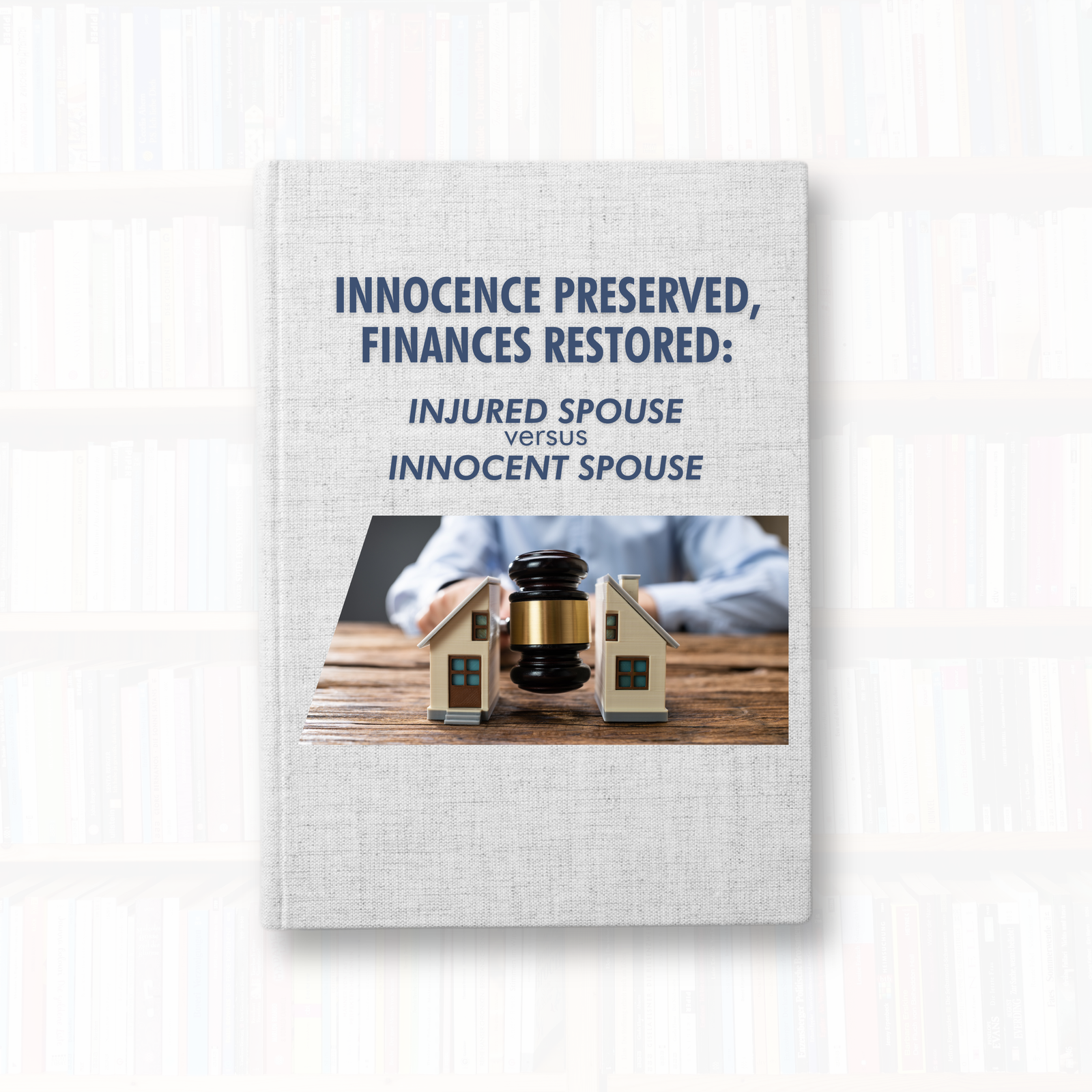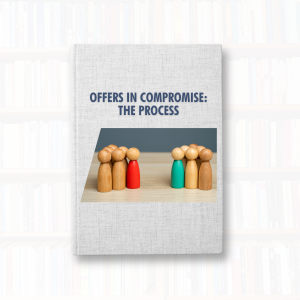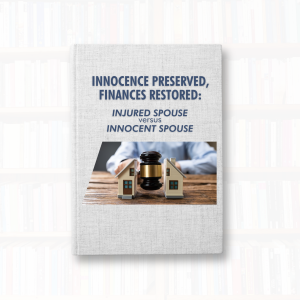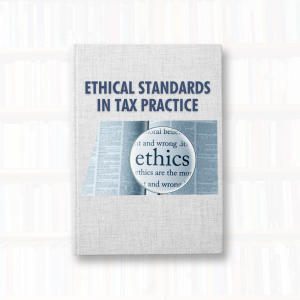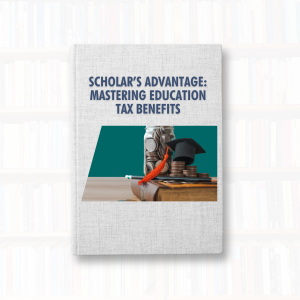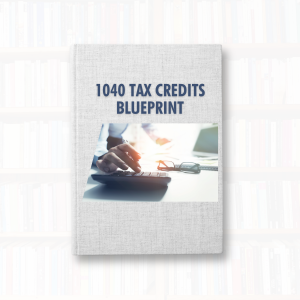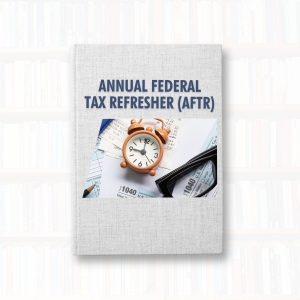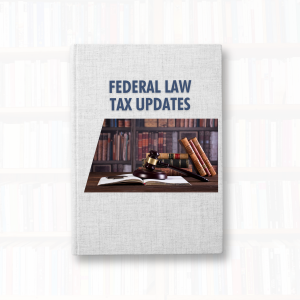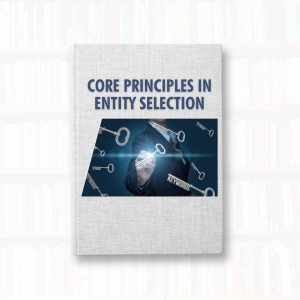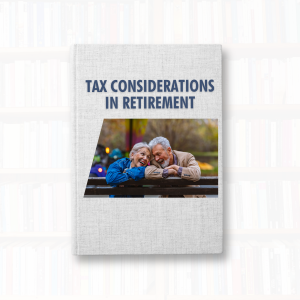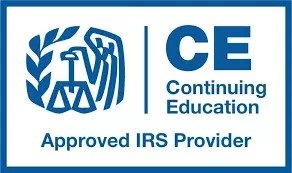OVERVIEW
Navigating the complexities of tax law presents a formidable challenge, particularly when addressing spousal liability and relief considerations. Injured Spouse vs. Innocent Spouse offers a comprehensive examination of IRS provisions tailored to assist spouses navigating tax liabilities stemming from errors, omissions, or improper actions by their partners.
Participants in this course will undertake a detailed exploration of the distinctions between an “Injured Spouse” and an “Innocent Spouse” as defined by IRS guidelines. You will master the criteria, qualifications, and procedures involved in seeking relief in each distinct scenario. Through rigorous analysis, enriched by case studies and practical examples drawn from real-world situations, participants will acquire a thorough understanding of spousal relief mechanisms.
Learning Objectives:
Upon completion of this course, you will be able to:
- Differentiate between Injured Spouse and Innocent Spouse relief provisions under the IRS rules.
- Identify the eligibility criteria for claiming Injured Spouse relief, including situations involving jointly filed tax returns where one spouse owes a federal debt (e.g., past-due taxes, child support, student loans).
- Learn the formulas and methods used to calculate the portion of a tax refund due to the Injured Spouse, considering factors like income, deductions, and credits attributable to each spouse.
- Understand the IRS forms required to file for Injured Spouse relief and Innocent Spouse relief.
- Explore the necessary documentation and evidence needed to support a claim for relief, including financial records, communications, and legal documents.
- Explore real-world case studies and court decisions involving Injured Spouse and Innocent Spouse relief claims.
At the end of the course, participants will be required to pass a comprehensive final exam covering all topics addressed throughout the course. The exam is open book, and the downloadable PDF containing the course material is available on the first page of the course. A minimum score of 70% is necessary to satisfy the 2 hour Continuing Education (CE) Ethics requirement and to obtain a Certificate of Completion. Successful course completions are reported to the IRS within three business days.
